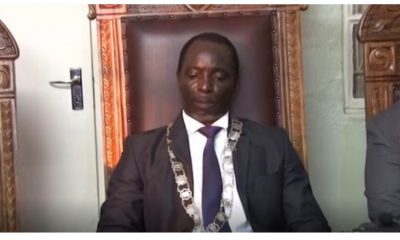BY NOKUTHABA DLAMINI
Elina Ncube, a former housekeeper at one of the prime lodges in the northern Zimbabwean tourist gateway of Victoria Falls, now survives by scavenging for food at the municipal dumpsite.
The 39-year-old mother of five wakes up as early as 4am to make her way to the Masuwe dumpsite because competition is tough as more and more of the city’s residents resort to scavenging due to deepening poverty.
A recent survey by the We Are Victoria Falls initiative found that 7,000 people in the resort city had lost their jobs because of the Covid-19 pandemic.
Forty six percent of workers in the tourism sector which covers leisure, hunting and tours as well as transfers were forced to work reduced hours.
Ncube was fortunate to get a temporary reprieve when the tourism industry reopened late last year after her former employer rehired her as a gardener, but her contract was terminated when Russia invaded Ukraine in February 2022.
The faraway conflict is having ripple effects across the planet, including in Zimbabwe.
Sectors including tourism that had felt they had turned a corner in recovering from the pandemic are now reeling from the impact of Vladimir Putin’s war.
Ncube’s employer is one of the many tourism operators who relied on Russian safari tourists in Zimbabwe, whose numbers have taken a dramatic dip since the war began.
“My husband is disabled and when I lost my job my neighbours introduced me to Masuwe dumpsite where we survive on picking up old clothes to wear, food to eat and plastic and metallic objects for resale to recyclers,” Ncube said.
“I can no longer afford to buy basic groceries such as bread and flour to feed my family and prospects of finding another job in this Covid-19 era are near impossible.
“The war in Ukraine has made the situation even more desperate because most of the tourists that booked at our lodge were from Russia and we were told that most of them had cancelled their bookings.”

Victoria Falls is one of Zimbabwe tourism industry’s major attaractions
Clement Mukwasi, president of the Employers Association for Tours and Safari Operators, said Russia is a big source market for Zimbabwe’s hunting industry and the war had an immediate impact on the country’s tourism industry that was beginning to recover from the impact of Covid- 19 lockdowns.
“We were hoping that we would begin to see some tourist arrivals from all over the world, but we have seen that the tourists, specifically those that come from Russia have completely stopped coming to the continent of Africa,” Mukwasi said.
“Russian citizens are unable to transact on any of the monetary platforms because of the sanctions that the country has been hit with and also when there is instability, it becomes difficult for people to freely move. So what is going to continue happening is that certain sectors of tourism are going to be affected, especially the hunting sector which is mainly dominated by the Russian, Belarusian and Ukrainian tourists.”
“Tourist arrivals from Russia’s neighbours such as Ukraine, Turkey, Poland and Germany have also dropped significantly.”
Mukwasi said the cost of travel globally was rising rapidly as a result of the war and this will negatively impact tourism.
“We are watching that closely and we hope that it will not get back to a point where we are on our knees again, but our bookings that were from these war-zone countries, their neighbours and some parts of Europe have already been cancelled,” Mukwasi added.
O’brien Dube, a driver employed by a tours and transfers service provider in Victoria Falls, said since the Russia-Ukraine war began the number of tourists had gone down significantly.
“I earn on commission, and this means that if there are no tourists coming through, the demand for my services is low,” Dube said. “Bread now costs over US$2 in supermarkets and the price of fuel has also gone up. I am struggling to feed my children because my taxi has been parked for several weeks.”
A loaf of bread now costs US$2.21 after a series of price reviews in the last two months, which the Grain Millers Association of Zimbabwe attributes to the increasing difficulties in importing wheat from Ukraine and Russia. Zimbabwe sources nearly 60 percent of its wheat supplies from Russia and Ukraine.
Beyond the toll on people, conservationists say a combination of Covid-19, effects of the Russia-Ukraine war and Zimbabwe’s worsening economic problems is increasing cases of poaching in communities around game reserves.
Trevor Lane, founder of Bhejane Trust in Victoria Falls, said the Covid-19 pandemic and the general economic collapse has seen both large and small wild animals being targeted by poachers.
Lane said there has also been a rise in fish poaching where poachers resort to using mosquito nets to catch larger volumes of fish
“Covid-19 has had a massive impact across Africa, which is having devastating consequences, and we are seeing an alarming surge in wildlife and fish poaching,” Lane said.
“We find mosquito nets and cheap filament nets being used illegally with an alarming number of small fish being taken out of the waters before they reach maturity and reproductive size, and this is compromising our ecosystem,”
Ollen Dube, an environmental expert based in Victoria Falls, said there was a worrying increase in poaching activities.
“Large mammals such as the elephants and rhinos are the prime target too and with this on-going war in Ukraine, the Covid pandemic and general levels of unemployment, we are likely to see many more of them being poached,” Dube said.
In the past few months, police have made several arrests of people found selling ivory in areas such as Victoria Falls, Hwange, Kamativi and Dete.
At least three rhinos have also been killed by poachers in game reserves in Matabeleland South and Masvingo.
The impact of the war is also being felt through the frequent fuel price increases. Stevenson Dhlamini, an economist from the National University of Science and Technology in Bulawayo, said the Russia-Ukraine war was having a devastating impact on Zimbabwe’s already struggling economy.
“The effect is especially felt in the wheat sector, where supply chains were disrupted by the conflict and consequently created production bottlenecks,” Dhlamini said.
Finance minister Mthuli Ncube last month blamed Zimbabwe’s galloping inflation on the Russia-Ukraine war, saying it was disrupting global supply chains. – The Independent

 Slider3 years ago
Slider3 years ago
 National4 years ago
National4 years ago
 Tourism and Environment4 years ago
Tourism and Environment4 years ago
 Special reports4 years ago
Special reports4 years ago
 Opinion4 years ago
Opinion4 years ago
 National4 years ago
National4 years ago
 National3 years ago
National3 years ago
 National3 years ago
National3 years ago













